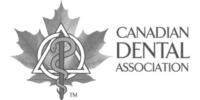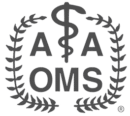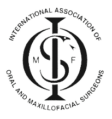Home Instructions Following Oral Surgery
Oral surgery such as tooth extraction, removal impacted wisdom teeth and implant placement is a serious surgical procedure. Post-operative care is very important. Unnecessary pain and complications such as infection and swelling can be minimized if these instructions are followed carefully.
Immediately Following Surgery
- The gauze pad placed over the surgical area should be kept in place for a half hour. After this time, the gauze pad should be removed and discarded.
- Vigorous mouth rinsing and/or touching the wound area following surgery should be avoided. This may initiate bleeding by causing the blood clot that has formed to become dislodged.
- Take the prescribed pain medications as soon as you begin to feel discomfort. This will usually coincide with the local anesthetic becoming diminished.
- Restrict your activities the day of surgery and resume normal activity when you feel comfortable.
- Place ice packs to the sides of your face where surgery was performed. Refer to the section on swelling for a more thorough explanation.
CAUTION: If you suddenly sit up or stand from a lying position you may become dizzy. If you are lying down following surgery, make sure you sit up for one minute before standing.
Bleeding
It is normal for your saliva to be lightly streaked with blood for 1 to 2 days following surgery. If moderate bleeding is present, fold gauze into a firm, thick pad and place directly on the socket or against the operative site and maintain steady pressure for 30 minutes or longer. The less frequently the gauze is changed, the better. Rest and keep your head elevated to slow down the flow of blood and stop the bleeding. Do not spit out. Do not chew the gauze. Do not fall asleep with the gauze in your mouth. In an emergency, a tea bag moistened in warm water may be substituted for the gauze pad. Do not rinse your mouth until 24 hours after the bleeding has stopped.
Swelling, Discoloration & Numbness
Swelling is to be expected in certain cases, often reaching its maximum approximately 48 hours following surgery, and then disappearing over the following 4 to 5 days. An ice bag/pack may be applied to the outside of the face next to the surgical site for 20 minutes on and 20 minutes off for the first 24 to 48 hours following surgery. If there has been considerable swelling and/or bruising, a temporary loss of sensation may occur. It is permissible to apply mild heat, using a hot water bottle or heating pad/bag, beginning 48 hours after surgery. Apply to the affected site(s) 20 minutes on and 20 minutes off.
Bruising of the skin occasionally occurs and disappears spontaneously in approximately one week. This is a normal consequence of surgery and no treatment is indicated. In some cases, discoloration of the skin follows swelling. The development of black, blue, green, or yellow discoloration is due to blood spreading beneath the tissues. This is a normal post-operative occurrence, which may occur 2-3 days post-operatively. Moist heat applied to the area may speed up the removal of the discoloration.
Partial loss of sensation of the lower lip and chin may occur, usually following removal of lower teeth or lower implant placement. This is usually temporary and disappears within a few days or weeks.
Pain & Medications
Pain or discomfort following surgery should subside more and more every day.
For moderate pain, one or two tablets of Tylenol or Extra Strength Tylenol may be taken every 3-4 hours. Ibuprofen (Advil or Motrin) may be taken instead of Tylenol. Ibuprofen bought over the counter comes in 200 mg tablets: 2-3 tablets may be taken four times daily, not to exceed 3200mg daily for an adult. Consult our practice for individuals under 18. Do not take the two medications at the same time. Do not take any of the above medication if you are allergic to them or have been instructed by your doctor not to take it.
For severe pain, the prescribed medication should be taken as directed. The first tablet can
be taken before the anesthetic wears off, roughly 2 to 8 hours after the procedure. If you were prescribed opioid pain medication (ex. Tylenol #3, Percocet) do not drive or operate hazardous equipment or drink alcohol as the medication may cause dizziness and/or drowsiness. Additional information about prescribed medications can be found on the information sheets provided by the pharmacy or by contacting your pharmacist directly.
If an allergic reaction occurs and you develop a rash, hives, itching, or have severe to persistent diarrhea please contact our office. If you develop difficulty breathing, seek emergency medical treatment.
If pain persists, it may require attention and you should call the office.
Antibiotics
If you have been placed on antibiotics, take the tablets or liquid as directed. Antibiotics will be given to help prevent infection. Discontinue antibiotic use in the event of a rash or any other unfavorable reaction and contact our office immediately. Call the office if you have any questions.
Diet
Following oral surgery, it may be difficult to eat. A soft food diet is recommended for 3 to 5 days following surgery, along with plenty of fluid consumption. Avoid small foods like rice, peas, seeds or nuts that can easily become trapped in the operative site(s). Avoid hot drinks/soup until local anesthesia, or “freezing”, has worn off approximately 2 to 8 hours following the procedure. When “frozen” it may be more difficult to swallow liquids or medication – take small sips of water. Do not use straws for a minimum of 24 hours following surgery, as this may dislodge the blood clot. A regular diet can usually be resumed after 5 to 7 days or when it can be comfortably managed.
Oral Hygiene
In general, the cleaner you keep the extraction site the better it will heal. Keep fingers and tongue away from operative site. Do not rinse your mouth for the first 24 hours as this can disturb the healing process. Begin rinsing the socket with warm salt water (1 teaspoon of salt in 250mL of warm water) 24 hours after surgery. It is recommended to rinse after meals and before bed. Do not use commercial mouth rinses for the first 2 days, as they may irritate the extraction site. Brushing and flossing can be continued, throughout the healing process, taking extra care to avoid the surgical site for the first 4 days following surgery.
Nausea and Vomiting
In the event of nausea and/or vomiting following surgery, do not take anything by mouth for at least an hour, including the prescribed medicine. You should then sip on coke, tea, or ginger ale. You should sip slowly over a fifteen-minute period. When the nausea subsides, you can begin taking solid foods and the prescribed medicine.
Bone Fragments
Sometimes small fragments of bone will come to the surface of an extraction site as the patient’s body ejects them during the healing process. Should this occur please contact our office as you may require assistance in removing them.
Exercise & Sporting Activities
It is best to rest, keeping your head slightly elevated, for 48 following surgery. Exercise and sporting activities can typically be slowly introduced 3 to 5 days after surgery (contact sports not included and should be discussed with practitioner). Should bleeding begin during or after exercise, rest for an additional 24 to 48 hours.
Smoking
Do not smoke for a minimum of 72 hours following surgery or ideally, throughout the entire recovery period. Smoking can lead to increased pain, dry socket, delayed healing and possible infection.
Oral-antral Communication
Rarely, following the removal of an upper molar, an opening can be formed between the floor of the sinus and the extraction site. Should you experience fluid going from mouth to nose when drinking, or have a sensation of air rushing through the extraction site when breathing, please stop rinsing and contact our office for an appointment.
Removable Oral Appliances
Dentures inserted by the practitioner following oral surgery should not be removed for an extended period of time (until 72 hours after surgery) due to possible swelling. Swelling may cause the denture(s) to be more difficult to remove and/or insert. 24 hours after surgery, quickly remove your denture to clean and rinse your mouth with warm salt water, immediately insert your denture following. Continue wearing your denture(s) for an additional 24 hours, removing only to clean and rinse your mouth with warm salt water following each meal. 72 hours following the procedure you can resume your normal denture routine, ensuring that your denture is cleaned following each meal and before bed.
Appliances, such as retainers and night guards, can be worn after the healing, approximately 3 to 5 days or when comfortably managed.
Additional Instructions for Surgery Involving the Sinuses
Additional precautions need to be taken when involving the sinus cavity (ex. sinus lift procedure). For the next 14 days following surgery; do not smoke or drink from a straw, as the negative suction may result in sinus problems. Your sinus may feel “stuffy” or there may be some nasal drainage. Decongestants may be taken to reduce pressure in the sinus(es). Do not blow nose or sneeze. If sneezing cannot be avoided, ensure that mouth is open when sneezing. Do not engage in strenuous activities. Do not wear dentures, unless otherwise instructed by your surgeon. Flying in pressurized aircrafts and scuba diving may increase sinus pressure and should be avoided.
Other Complications
- If numbness of the lip, chin, or tongue occurs there is no cause for alarm. As reviewed in your consultation, this is usually temporary in nature. You should be aware that if your lip or tongue is numb, you could bite it and not feel the sensation. Call Dr. Daisy Chemaly or if you have any questions.
- Slight elevation of temperature immediately following surgery is not uncommon. If the temperature persists, notify the office. Tylenol or ibuprofen should be taken to reduce the fever.
- You should be careful going from the lying down position to standing. You could get lightheaded from low blood sugar or medications. Before standing up, you should sit for one minute before getting up.
- Occasionally, patients may feel hard projections in the mouth with their tongue. They are not roots; they are the bony walls which supported the tooth. These projections usually smooth out spontaneously. If not, they can be removed by Dr. Daisy Chemaly or one of the associates.
- If the corners of your mouth are stretched, they may dry out and crack. Your lips should be kept moist with an ointment such as vaseline.
- Sore throats and pain when swallowing are not uncommon. The muscles get swollen. The normal act of swallowing can then become painful. This will subside in 2-3 days.
- Stiffness (Trismus) of the jaw muscles may cause difficulty in opening your mouth for a few days following surgery. This is a normal post-operative event which will resolve in time.
Finally
Sutures are placed in the area of surgery to minimize post-operative bleeding and to help healing. Sometimes they become dislodged. This is no cause for alarm. Just remove the suture from your mouth and discard it. The sutures will be removed approximately one week after surgery. The removal of sutures requires no anesthesia or needles. It takes only a minute or so, and there is usually no discomfort associated with this procedure.
The pain and swelling should subside more and more each day following surgery. If your post-operative pain or swelling worsens or unusual symptoms occur, call our office for instructions.
There will be a void where the tooth was removed. The void will fill in with new tissue gradually over the next month. In the meantime, the area should be kept clean, especially after meals, with salt water rinses or a toothbrush.
Your case is unique, no two mouths are alike. Discuss any problems with the trained experts best able to effectively help you: Dr. Daisy Chemaly, or your family dentist.










